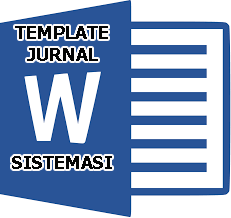Analisis Sentimen Publik dari Twitter Tentang Kebijakan Penanganan Covid-19 di Indonesia dengan Naive Bayes Classification
Abstract
Abstrak
Beberapa bulan terakhir, penanganan COVID-19 menjadi salah satu permasalahan kompleks yang dihadapi oleh hampir seluruh negara di dunia. Menilik dari hal tersebut, pemerintah membentuk kebijakan guna mencegah semakin meluasnya penyebaran virus diantaranya Pembatasan Sosial Berskala Besar (PSBB), wajib masker, dan jam malam. Kebijakan tersebut mendapat tanggapan yang beragam, tidak terkecuali di media sosial seperti twitter. Berdaarkan hal tersebut, penelitian ini bertujuan untuk menganalisis sentimen publik dari cuitan Twitter mengenai penanganan COVID-19 di Indonesia. Adapun metode yang digunakan Naïve Bayes Classification karena memiliki algoritma yang sederhana dengan akurasi yang tinggi. Hasil penelitian menunjukkan, masyarakat lebih banyak memberikan sentimen negatif terhadap kebijakan penanganan COVID-19 khususnya PSBB, wajib masker, dan jam malam. Pada sentimen positif, tiga kata dengan frekuensi kemunculan terbanyak yaitu demo, jakarta, dan kerja. Sedangkan pada sentimen negatif yaitu jakarta, demo, dan orang. Kemunculan kata “demo” dan “jakarta” pada kedua sentimen menunjukkan bahwa tweet masyarakat mengenai kebijakan penanganan COVID-19 tidak lepas dari peristiwa/kejadian saat pengumpulan data dilakukan. Selain itu, tingginya frekuensi kata “jakarta” pada sentimen negatif juga menunjukkan bahwa pelaksanaan kebijakan penanganan COVID-19 di Jakarta belum dilaksanakan secara optimal. Berdasarkan hasil evaluasi, diperoleh tingkat akurasi klasifikasi sebesar 87,34%, sensitivitas sebesar 93,43%, dan spesifisitas 71,76% yang berarti metode ini sudah cukup baik.
Kata Kunci: COVID-19, naïve bayes classification, kebijakan, text mining, twitter
Abstract
In recent months, handling COVID-19 has become one of the complex problems faced by almost all countries in the world. In view of this, the government formed policies to prevent the spread of the virus, including Large-Scale Social Restrictions (PSBB), mandatory masks, and curfews. This policy received various responses, including on social media such as Twitter. Based on this, this study aims to analyze public sentiment from Twitter tweets regarding the handling of COVID-19 in Indonesia. The method used is the Naïve Bayes Classification because it has a simple algorithm with high accuracy. The results showed that the public gave more negative sentiments towards the policy of handling COVID-19, especially PSBB, mandatory masks, and curfews. On the positive sentiment, the three words with the highest frequency were “demo”, “jakarta”, and “work”. Meanwhile, the negative sentiment is “jakarta”, “demo”, and “orang”. The appearance of the words "demo" and "jakarta" in both sentiments shows that the public's tweet regarding the policy for handling COVID-19 cannot be separated from the events / incidents when data collection was carried out. In addition, the high frequency of the word “jakarta” in negative sentiments also shows that the implementation of policies for handling COVID-19 in Jakarta has not been implemented optimally. Based on the evaluation results, the classification accuracy rate is 87.34%, the sensitivity is 93.43%, and the specificity is 71.76%, which means that this method is good enough.
Keywords: COVID-19, naïve bayes classification, policy, text mining, twitter
Full Text:
PDFReferences
Yuliana, “Corona Virus Diseases (Covid -19); Sebuah Tinjauan Literatur,” Wellness Heal. Mag., Vol. 2, No. February, pp. 124–137, 2020, doi: 10.2307/J.Ctvzxxb18.12.
Gugus Tugas Percepatan Penanganan COVID-19. 2020, “Infografis COVID-19,” Infografis COVID-19, 2020. Https://Covid19.Go.Id/ (Accessed Sep. 11, 2020).
T. Nichols, Matinya Kepakaran. Jakarta: Gramedia Pustaka Utama, 2018.
S. Suryono, E. Utami, and E. T. Luthfi, “Analisis Sentiment Pada Twitter Dengan Menggunakan Metode Naïve Bayes Classifier,” Semin. Nas. Geotik 2018, pp. 9–15, 2018.
M. Syarifuddin, “Analisis Sentimen Opini Publik Mengenai Covid-19 Pada Twitter Menggunakan Metode Naïve Bayes dan Knn,” Inti Nusa Mandiri, Vol. 15, No. 1, pp. 23–28, 2020.
E. I. Elmurngi and A. Gherbi, “Unfair Reviews Detection on Amazon Reviews Using Sentiment Analysis With Supervised Learning Techniques,” J. Comput. Sci., Vol. 14, No. 5, pp. 714–726, 2018, doi: 10.3844/Jcssp.2018.714.726.
B. Liu and B. Liu, the Problem of Sentiment Analysis. Cambridge University Press, 2015.
I. Rish, “An Empirical Study of the Naïve Bayes Classifier an Empirical Study of The Naive Bayes Classifier,” Cc.Gatech.Edu, No. January 2001, pp. 41–46, 2014, [Online]. Available: Https://Www.Cc.Gatech.Edu/~Isbell/Reading/Papers/Rish.Pdf.
S. Hikmawan, A. Pardamean, and S. N. Khasanah, “Sentimen Analisis Publik Terhadap Joko Widodo Terhadap Wabah Covid-19 Menggunakan Metode Machine Learning,” Vol. 20, No. 2, pp. 167–176, 2020.
W. Bimananda, I. Riski, K. Dwi, R. Nooraeni, and T. Siahaan, “Analisis Text Mining Dari Cuitan Twitter Mengenai Infrastruktur di Indonesia Dengan Metode Klasifikasi Naïve Bayes,” Eig. Math. J., Vol. 2, No. 2, 2019.
S. Pramana, B. Yuniarto, S. Mariyah, I. Santoso, and R. Nooraeni, Data Mining Dengan R Konsep Serta Implementasi. Bogor: Penerbit IN Media, 2015.
A. Roihan, P. A. Sunarya, and A. S. Rafika, “Pemanfaatan Machine Learning Dalam Berbagai Bidang: Review Paper,” IJCIT (Indonesian J. Comput. Inf. Technol., Vol. 5, No. 1, pp. 75–82, 2020, doi: 10.31294/Ijcit.V5i1.7951.
I. Muhammad and Z. Yan, “Supervised Machine Learning Approaches: A Survey,” ICTACT J. Soft Comput., Vol. 05, No. 03, pp. 946–952, 2015, doi: 10.21917/Ijsc.2015.0133.
A. Wibowo, M. D. Hidayat, And R. Dzakiyyah, “Analisis Sentimen Masyarakat Terhadap Calon Presiden Indonesia 2019 Berdasarkan Opini Dari Twitter Menggunakan Metode Naive Bayes Classifier,” 2019.
Bustami, “Penerapan Algoritma Naive Bayes untuk Mengklasifikasi Data Nasabah Asuransi,” Vol. 8, No. 1, pp. 884–898, 2014.
Y. Watequlis Syaifudin and D. Puspitasari, “Twitter Data Mining for Sentiment Analysis on Peoples Feedback Against Government Public Policy,” Matter Int. J. Sci. Technol., Vol. 3, No. 1, pp. 110–122, 2017, doi: 10.20319/Mijst.2017.31.110122.
A. R. Susanti, “Analisis Klasifikasi Sentimen Twitter Terhadap Kinerja Layanan Provider Telekomunikasi Menggunakan Varian Naive Bayes,” Institut Pertanian Bogor, 2016.
R. Nasruddin and I. Haq, “Pembatasan Sosial Berskala Besar (PSBB) dan Masyarakat Berpenghasilan Rendah,” SALAM J. Sos. Dan Budaya Syar-I, Vol. 7, No. 7, 2020, doi: 10.15408/Sjsbs.V7i7.15569.
DOI: https://doi.org/10.32520/stmsi.v10i1.1179
Article Metrics
Abstract view : 6396 timesPDF - 2674 times
Refbacks
- There are currently no refbacks.

This work is licensed under a Creative Commons Attribution-ShareAlike 4.0 International License.









